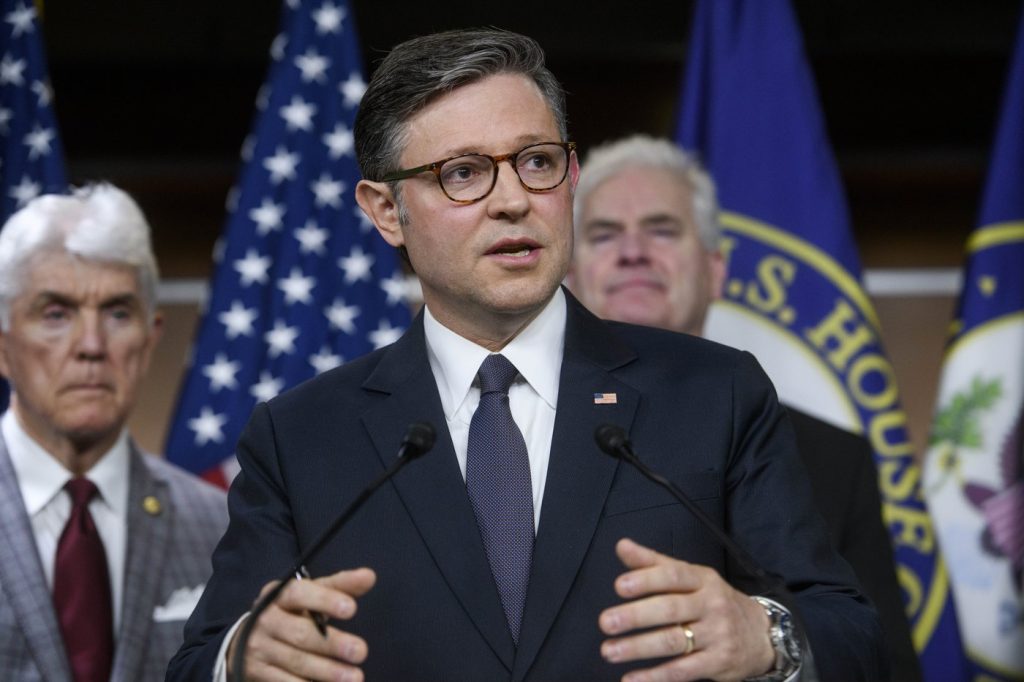House Republicans have recently introduced a significant legislative proposal aimed at achieving cost savings, primarily through substantial cuts to Medicaid. This initiative is part of President Donald Trump's broader strategy to provide $4.5 trillion in tax breaks, necessitating at least $880 billion in spending reductions. The proposed legislation, comprising hundreds of pages, is sparking intense political debate that mirrors the contentious attempts to repeal and replace the Affordable Care Act (ACA) during Trump's first term in 2017.
Republicans argue that their plan is focused on eliminating "waste, fraud, and abuse" within the healthcare system by implementing new work and eligibility requirements for Medicaid. However, Democrats caution that such measures could lead to millions of Americans losing their health coverage. The Congressional Budget Office (CBO), an independent nonpartisan agency, projects that these proposals could result in an estimated decline of 8.6 million individuals with healthcare access over the next decade.
Rep. Brett Guthrie of Kentucky, the GOP chairman of the Energy and Commerce Committee, stated, "Savings like these allow us to use this bill to renew the Trump tax cuts and keep Republicans' promise to hardworking middle-class families." In response, Democratic leaders have condemned the cuts as "shameful," suggesting they represent a renewed attempt to undermine the ACA. Rep. Frank Pallone, the top Democrat on the committee, asserted, "Millions of Americans will lose their health care coverage, hospitals will close, seniors will not be able to access the care they need, and premiums will rise for millions of people if this bill passes."
With House Speaker Mike Johnson establishing a Memorial Day deadline for the passage of Trump’s significant tax and spending bill, Republicans are fast-tracking the legislative process. They plan to conduct extensive public hearings throughout the week, aiming to produce a cohesive package from the contributions of 11 committees in the House, which are working on various sections of the proposed legislation. In total, the GOP is targeting at least $1.5 trillion in savings to sustain the tax breaks enacted during Trump’s first term, which are set to expire at year-end.
The Energy and Commerce Committee, which oversees healthcare and energy programs, has attracted considerable attention due to its sensitive nature. The committee was tasked with finding $880 billion in fiscal savings, a goal they achieved primarily through healthcare-related cuts and a rollback of certain green energy policies instituted under President Biden. The preliminary analysis from the CBO estimates that the committee's initiatives could lower the deficit by $912 billion over ten years, with at least $715 billion derived from healthcare changes.
The proposed Medicaid changes are particularly consequential, as the program currently serves over 70 million Americans by providing low-cost healthcare. Under the new legislation, eligibility for Medicaid would require individuals to demonstrate "community engagement" through at least 80 hours a week of work, education, or community service. Additionally, participants would face increased verification frequency for their eligibility, from once to twice a year. Critics warn that these new requirements will create substantial barriers, making it more challenging for beneficiaries to maintain their coverage.
Moreover, the bill seeks to eliminate a 5% funding boost that states have enjoyed during the COVID-19 pandemic. Federal assistance to states for undocumented immigrants who cannot provide proof of citizenship would also be prohibited. Additionally, the legislation includes a freeze on the provider tax that several states utilize to fund significant parts of their Medicaid programs, which opponents argue creates abusive practices in the system.
In contrast, the energy components of the proposed legislation encompass fewer pages but include extensive rollbacks of climate initiatives established under Biden's Inflation Reduction Act. Provisions in the legislation propose rescinding funds for various energy loan and investment programs while facilitating expedited permitting for natural gas and oil pipeline projects.











